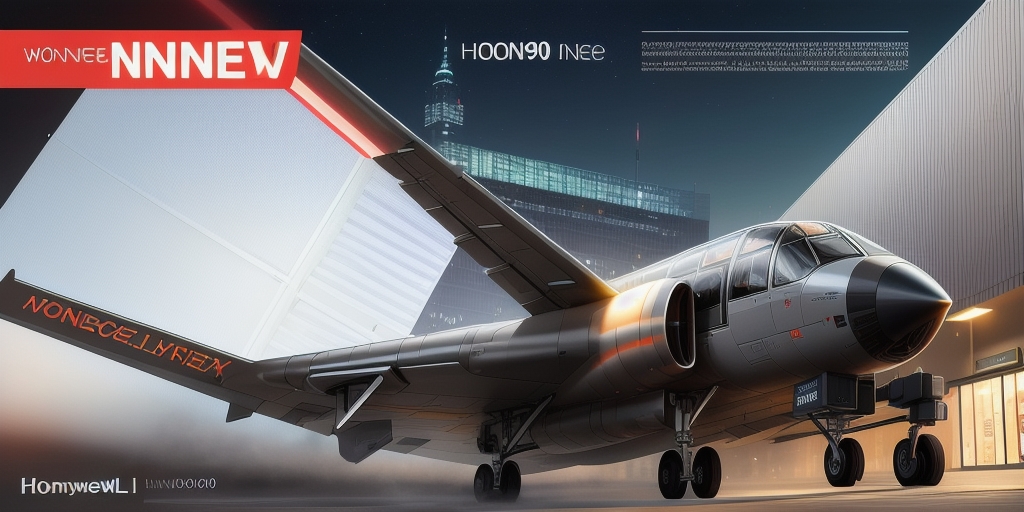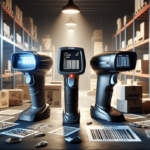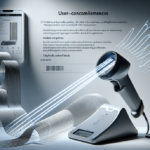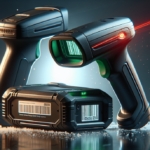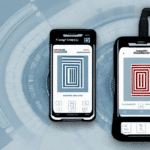Honeywell Xenon 1900g vs WoneNice USB Laser Barcode Scanner
In today's fast-paced business environment, barcode scanners are indispensable for streamlining inventory management and enhancing accuracy. Selecting the right barcode scanner is crucial for your business's success. The Honeywell Xenon 1900g and the WoneNice USB Laser Barcode Scanner are two prominent options in the market. This comprehensive comparison delves into their features, performance, and suitability to help you determine which scanner best aligns with your business needs.
Introduction to Barcode Scanners
Barcode scanners are electronic devices that read and decode barcodes printed on products, packaging, or shipping labels. Utilizing technologies such as lasers or image sensors, these scanners interpret barcode information and convert it into digital data. This data is essential for tracking and managing inventory, processing sales, and monitoring production processes, thereby enhancing operational efficiency.
There are several types of barcode scanners available, including:
- Handheld Scanners: Portable and versatile, ideal for scanning items that are difficult to reach or move.
- Fixed-Mount Scanners: Stationary scanners commonly used in manufacturing or assembly lines to scan items as they pass by.
- Presentation Scanners: Designed for retail environments, these scanners are used at the point of sale to quickly scan items during checkout.
Choosing the right type depends on your specific business needs and operational environment.
Key Features of the Honeywell Xenon 1900g
The Honeywell Xenon 1900g is a high-performance barcode scanner renowned for its superior scanning capabilities. Key features include:
- Advanced Imaging System: Capable of scanning virtually any barcode, including high-density and 2D barcodes like QR codes.
- Mobile Device Scanning: Equipped with a custom sensor that can read barcodes displayed on smartphones and tablets, increasing versatility.
- Durable Design: Built to withstand drops from up to 6 feet and resistant to harsh industrial environments, ensuring longevity and reliability.
- Quick-Access Button: Allows users to switch between continuous and manual scanning modes seamlessly, enhancing productivity during high-volume operations.
- Multi-Interface Connectivity: Supports USB, RS232, and keyboard wedge interfaces, facilitating easy integration with various systems and devices.
- Advanced Data Capture: Capable of capturing images and signatures, making it suitable for applications beyond basic barcode scanning.
According to Honeywell, the Xenon series offers a scan rate of up to 200 scans per second, making it ideal for environments with high scanning demands.
Comparing WoneNice USB Laser Barcode Scanner to Honeywell Xenon 1900g
The WoneNice USB Laser Barcode Scanner provides a cost-effective solution with reliable scanning capabilities. Key comparisons include:
- Scanning Technology: Utilizes a laser scanning engine proficient in reading most common 1D barcodes but may struggle with smaller or denser codes.
- Portability: Lightweight and compact design makes it easy to carry and use in various settings.
- Ease of Use: Features a plug-and-play USB interface requiring no additional software installation, ideal for quick deployment.
- Versatility: While effective for basic barcode scanning needs, it lacks the advanced imaging capabilities of the Honeywell Xenon 1900g.
In contrast, the Honeywell Xenon 1900g excels in scanning a wider range of barcode types, including 2D barcodes, and is built for more demanding environments. However, it comes at a higher cost, which may not be necessary for businesses with simpler scanning requirements.
Pros and Cons of the Honeywell Xenon 1900g Barcode Scanner
Pros:
- Superior scanning capabilities, including high-density and 2D barcodes.
- Durable and reliable design suitable for rugged environments.
- Quick-access button for seamless switching between scanning modes.
- Custom sensor allows scanning from mobile devices, enhancing versatility.
- Advanced data capture features like image and signature capture.
Cons:
- Higher cost compared to other barcode scanners.
- May offer more features than necessary for businesses with basic scanning needs.
Additionally, the Honeywell Xenon 1900g’s ability to read damaged or poorly printed barcodes can significantly reduce errors and save time during inventory management. However, the initial investment may be a barrier for smaller businesses with limited budgets.
Pros and Cons of the WoneNice USB Laser Barcode Scanner
Pros:
- Cost-effective solution for businesses with basic barcode scanning needs.
- Lightweight and compact, enhancing portability and ease of use.
- Plug-and-play USB interface simplifies setup, requiring no additional software.
- Suitable for small to medium-sized businesses with moderate scanning volumes.
Cons:
- Limited to scanning 1D barcodes, struggles with smaller or high-density codes.
- Lacks the durability and ruggedness required for industrial environments.
- Less versatile compared to high-end scanners like the Honeywell Xenon 1900g.
The WoneNice USB Laser Barcode Scanner is ideal for small businesses or applications with occasional scanning needs. However, it may not be suitable for high-volume or demanding scanning environments where durability and advanced features are necessary.
Which Barcode Scanner is Best for Your Business Needs?
The decision between the Honeywell Xenon 1900g and the WoneNice USB Laser Barcode Scanner depends on your business's specific requirements:
- High-Performance Needs: If your business demands high-speed scanning, versatility in barcode types, and operates in a rugged environment, the Honeywell Xenon 1900g is the superior choice.
- Budget-Conscious and Basic Needs: For businesses that primarily scan common 1D barcodes and require an affordable, portable scanner, the WoneNice USB Laser Barcode Scanner is more appropriate.
Consider the environment in which the scanner will be used. For instance, a warehouse or manufacturing facility may benefit from a rugged scanner like the Zebra DS2278, while a retail setting might prefer a sleek model like the Datalogic Gryphon GD4400.
How to Choose the Right Barcode Scanner for Your Business
Selecting the right barcode scanner involves evaluating several critical factors:
- Barcode Type: Determine whether you need to scan 1D, 2D, or both types of barcodes based on your inventory and applications.
- Operational Environment: Assess whether the scanner will be used in a harsh industrial setting or a more controlled office environment.
- Scanning Volume: Consider the number of scans required daily to ensure the scanner can handle your business's demand.
- Budget: Balance the features you need with your budget constraints to find the most cost-effective solution.
- Connectivity: Choose between wired (USB, RS232) and wireless (Bluetooth, Wi-Fi) scanners based on your operational needs.
- Ergonomics: Ensure the scanner is comfortable to use for extended periods to reduce user fatigue and increase productivity.
By carefully evaluating these factors, you can select a barcode scanner that seamlessly integrates with your business processes and enhances operational efficiency.
Factors to Consider When Choosing a Barcode Scanner
- Barcode Compatibility: Ensure the scanner can read the specific types of barcodes your business uses, including 1D and 2D formats.
- Durability: For environments where the scanner may be subjected to drops, dust, or moisture, a rugged design is essential.
- Scanning Speed: High-volume operations require scanners with fast scan rates to maintain efficiency.
- Wireless Connectivity: If mobility is required, opt for scanners with Bluetooth or Wi-Fi capabilities to allow for flexible scanning locations.
- Cost: Define your budget and seek scanners that offer the best features within that range without compromising essential functionalities.
- Ergonomics: A comfortable design reduces strain during prolonged use, increasing user satisfaction and productivity.
Price Comparison: Honeywell Xenon 1900g vs WoneNice USB Laser Barcode Scanner
Price is a significant factor when selecting a barcode scanner:
- Honeywell Xenon 1900g: This high-end barcode scanner typically ranges from $300 to $500 depending on the retailer and specific configuration.
- WoneNice USB Laser Barcode Scanner: A more budget-friendly option, prices generally range from $20 to $50.
While the Honeywell Xenon 1900g offers advanced features and greater durability, the WoneNice scanner provides a cost-effective solution for businesses with limited budgets and basic scanning needs.
Consider your specific use case: if your operations involve high-speed, high-volume scanning in demanding environments, investing in the Honeywell Xenon 1900g may offer long-term benefits. Conversely, for occasional scanning tasks in less demanding settings, the WoneNice USB Laser Barcode Scanner is an economical and practical choice.
Ease of Setup and Use: Honeywell Xenon 1900g vs WoneNice USB Laser Barcode Scanner
Both scanners are designed for ease of use, but there are notable differences:
- Honeywell Xenon 1900g: Requires initial setup and configuration, which may involve software installation and interface adjustments. Its advanced features may require some training for optimal use.
- WoneNice USB Laser Barcode Scanner: Offers a plug-and-play experience with no need for additional software, making it straightforward for non-technical users to set up and start scanning immediately.
Choose the Honeywell Xenon 1900g if you need advanced functionalities and are prepared to invest time in setup and training. Opt for the WoneNice scanner for a hassle-free, immediate scanning solution.
Warranty and Support: Honeywell Xenon 1900g vs WoneNice USB Laser Barcode Scanner
Warranty and support options differ between the two scanners:
- Honeywell Xenon 1900g: Typically comes with a 5-year manufacturer's warranty, offering extended protection and peace of mind. Additional service options like extended warranties and support contracts are often available, providing comprehensive support.
- WoneNice USB Laser Barcode Scanner: Generally includes a 1-year warranty, which covers basic defects and issues. Support options may be limited compared to high-end models.
For businesses that require extensive support and long-term reliability, the Honeywell Xenon 1900g offers superior warranty options. If budget constraints are a priority and the scanning needs are basic, the WoneNice scanner provides adequate coverage.
Real-life Applications in Different Industries
The Honeywell Xenon 1900g and WoneNice USB Laser Barcode Scanner cater to various industries with distinct applications:
- Retail: The Honeywell Xenon 1900g is widely used for efficient checkout processes and inventory management, while the WoneNice scanner serves smaller retail environments with simpler scanning needs.
- Healthcare: Honeywell's advanced data capture capabilities make the Xenon 1900g suitable for managing patient information and medical inventories.
- Manufacturing: The rugged design of the Honeywell Xenon 1900g is ideal for production lines and assembly processes, ensuring durability and consistent performance.
- Small Businesses: The WoneNice USB Laser Barcode Scanner is perfect for inventory management, tracking sales, and processing shipments in small to medium-sized enterprises.
Choosing the right scanner based on industry-specific requirements can enhance operational efficiency and accuracy.
The Future of Barcode Scanners: Predictions, Trends, and Innovations
Barcode scanner technology is rapidly evolving to meet modern business demands. Key trends and innovations include:
- Label-less Tracking: Moving towards systems that do not rely on physical labels, utilizing technologies like RFID for more flexible inventory management.
- Mobile Scanning: Increasing adoption of mobile devices equipped with scanning capabilities, enabling greater mobility and flexibility in operations.
- Cloud Integration: Enhancing data management and accessibility by integrating barcode scanners with cloud-based systems for real-time data updates and analytics.
- Artificial Intelligence and Machine Learning: Leveraging AI to improve scanning accuracy, predict maintenance needs, and provide actionable insights from scanned data.
These advancements are set to make barcode scanners more efficient, versatile, and integral to business operations in the future.
Conclusion: Which is Better, Honeywell Xenon 1900g or WoneNice USB Laser Barcode Scanner?
Both the Honeywell Xenon 1900g and the WoneNice USB Laser Barcode Scanner offer valuable barcode scanning capabilities tailored to different business needs. The Honeywell Xenon 1900g is ideal for businesses requiring high performance, durability, and advanced features, whereas the WoneNice USB Laser Barcode Scanner is suitable for those seeking a cost-effective, portable solution for basic scanning tasks.
Evaluate your business requirements, budget, and operational environment carefully. Consider factors such as barcode types, scanning volume, durability needs, and connectivity options to make an informed decision that enhances your business's efficiency and accuracy.













